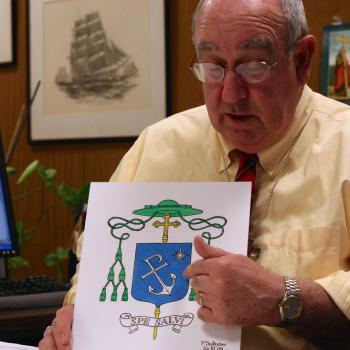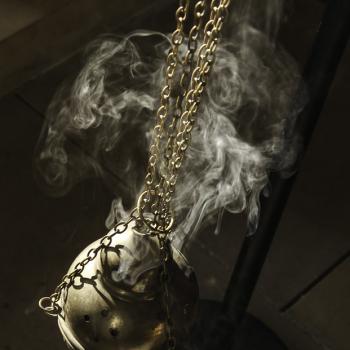With Easter rapidly approaching, deacons everywhere will be clearing their throats and getting ready to give voice to the great hymn of the Paschal Proclamation — also known as “The Exultet,” a seven-minute a capaella chant that fittingly, as the lyric proclaims, “humbles earthly pride.” It is the Mother of All Chants, an epic best approached with a strong heart and steeled nerves.
(For those interested, there’s an excellent downloadable version here that I’ve used for the last three years.)
My pal Elizabeth Scalia took note the other day of the new Roman Missal translation, so this seems a good time to mention, too, the changes coming to “The Exultet” — and they are not insignificant.
Those who aren’t aware of them may want to sit down.
The text which is sung now begins:
“Rejoice, heavenly powers! Sing choirs of angels! Exult all creation around God’s throne! Jesus Christ, our King, is risen!”
That will become:
“Exult, let them exult, the hosts of heaven, exult, let Angel ministers of God exult, let the trumpet of salvation sound aloud our mighty King’s triumph!”
There are quite a few long and meandering tongue twisters along the way, like:
“Therefore, dearest friends, standing in the awesome glory of this holy light, invoke with me, I ask you, the mercy of God almighty, that he, who has been pleased to number me, though unworthy, among the Levites, may pour into me his light unshadowed, that I may sing this candle’s praises…”
But one of the biggest of the many changes is the inclusion of bees. Yes. Bees. To wit:
On this, your night of grace, O holy Father, accept this candle, a solemn offering, the work of bees and of your servants’ hands, an evening sacrifice of praise, this gift from your most holy Church…
(You can read more, and see the musical setting, right here. The good news: we all have a year to practice.)
Evidently, bees were mentioned prominently in early versions of the medieval texts, and so are making a return appearance. Rejoice! (Unless, of course, you’re allergic…) It remains to be seen — and heard — how all this will sound in the all-too-human voice of your average parish deacon (ahem) and how it will then land on the ear. (Or will the deacon land on his rear?) Stay tuned.
So, practice, gentlemen.
And, of course, pray …












